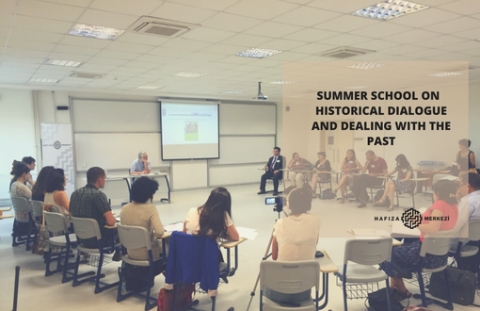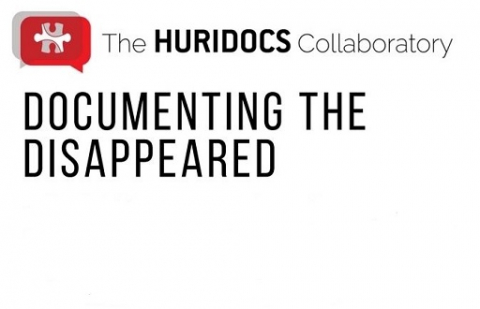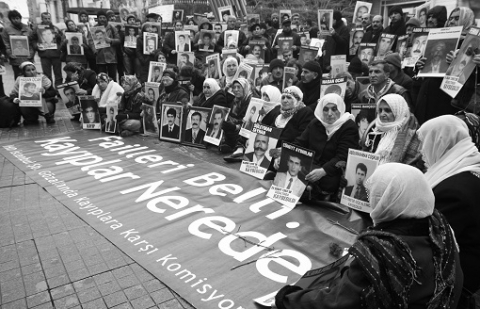
Inside The Advocacy Group Recording Victims Of Forced Disappearances In Turkey: An interview With Hafiza Merkezi
With conflicts raging in the neighboring countries of Syria and Iraq, a group in Turkey is working to record the victims of its own nation’s conflicts. Hakikat Adalet Hafıza Merkezi, (The Centre for Truth, Justice, and Memory), a member of Every Casualty’s Casualty Recorders Network, is looking back over decades of history to document victims of human rights abuses in order to break the cycle of impunity for crimes committed by the State.
Established in November 2011 by a group of human rights activists, journalists and lawyers to advocate for an adequate institutional and societal response to past grave violations of human rights in Turkey, the group is focusing its efforts on tracking the victims of enforced disappearances.
The use of enforced disappearances largely surfaced in Turkey as an official state practice following the 1980 military coup d’état, targeting dissidents, intellectuals, journalists, and, following the start of the conflict with the Kurdistan Workers Party (PKK) in 1984, ethnic Kurds. Today, the fate of hundreds of individuals in Turkey remains unknown. As a result, their families continue to suffer as they work to find answers regarding their loved ones.
By conducting in-depth interviews with relatives of the disappeared, lawyers, activists and other witnesses of the era, as well as by reviewing past legal documents and reports, Hafiza Merkezi has begun to create a record of the names and lives of Turkey’s disappeared. To date, they have recorded the names of 308 individuals, 135 of whom have been confirmed as deceased
By providing personal information about the disappeared, including date and place of disappearance and an account of how the disappearance took place, Hafiza Merkezi is working to distinguish victims as individuals; setting forth their stories to ensure they are remembered as more than just a number.
Like many organisations that work to document the victims of forced disappearances (some of whom are members of the Casualty Recorders Network) Hafiza Merkezi is hopeful that in creating such a record they can open a space for reconciliation, justice and the development of a social memory that addresses and accepts the crimes of the past. Without accurate and verifiable records of the disappeared – and the deceased – no such actions would be possible.
Every Casualty spoke to the director of the Documentation programme, Özgür Sevgi Göral, about the recording process, its impact, and her hopes for the future.
Tell us a bit about the context in which you are working. Why did you feel it necessary to start recording casualties in Turkey at this point in time?
Turkey and its historic and legal predecessors have a longstanding track record of grave human rights violations. Being a country with an imperial history, these violations are especially widespread; numbers of victims are virtually countless and the timeframe is vast. Just in the last 100 years, widespread violations were committed in several different periods and were mostly targeting specific religious or ethnic, and sometimes political groups. The most notable ones were the Armenian genocide of 1915, the coup d’états in 1960, 1972 and 1980, and the persecution of Kurds from the 1980s onwards.
The perpetrators of these crimes have remained immune from punishment. Such institutional and social indifference towards these crimes and their perpetrators have deepened the wounds of the victims, and the practices of reckoning with, understanding and redeeming the past, as well as prosecution and retribution mechanisms, remained inchoate. Several human rights organizations, lawyers, academics, and other components of the civil society have challenged this context through their efforts to document the violations and advocate for the rights of the victims.
Hafıza Merkezi has been working on these issues since 2009, and was established as a civil society organisation in 2011. At that time, the Kurdish conflict was still ongoing, however, in 2013 a ceasefire was announced and a peace process commenced. We believe that this peace process opened up a broader space for documenting gross human rights violations and fighting against impunity.
Specifically, Hafıza Merkezi has three lines of work: Documenting enforced disappearances as an example of a grave human rights violations along with a legal effort to break the cycle of impunity; contextualizing grave human rights violations in Turkey using a comparative perspective with other international cases; and using the mechanisms of the transitional justice paradigm as tools for facilitating a discussion of Turkish history.
What is the process of recording casualties for your organisation? How does it work on a day-to-day basis?
We are documenting enforced disappearances beginning with the coup d’état of 1980. We have three main sources of information: interviews with the relatives of the disappeared conducted during fieldwork, legal data including legal documents of national and international bodies and institutions, and previous work (reports, publications, press releases etc.) of human rights organizations. Information collected through different sources are classified after our process of verification and entered into our online public database (www.zorlakaybetmeler.org). In addition, we keep a hard copy archive of interviews, legal data and other relevant information to enforced disappearances, that is open to researchers, academics, journalists and lawyers.
We are trying to produce knowledge surrounding forcibly disappeared people with different focuses, including transitional justice, gender, state crimes, etc. Each day, several components of the work of documentation, including transcription of the interviews, translation of them from Kurdish to Turkish, and entering relevant information on the online database after the processes of verification, is undertaken by the Memory Studies team.
Our Legal team monitors important litigation cases, develops and implements various legal intervention tools to support the victims of these ongoing cases, provides legal assistance for the lawyers of the cases of enforced disappearances, and supports lawyers who try to stop the statute of limitations for the investigations with the purpose of building a joint-effort and network.
Our Advocacy and Dissemination team, on the other hand, disseminate the data that we have collected through several media outlets including social media and reports, organize press meetings and meetings with state representatives, as well as deliver trainings and class lectures in relation to our work. They also organize screenings of a documentary produced by Hafıza Merkezi, Buka Barane, which focuses on the memories of war of a class of primary school children in the 1990s living in the village of Gever (Yüksekova).
What has the reaction been, from sources, the government or others in your community to your efforts to record casualties?
Generally speaking, we have always had very positive feedback from our sources. We are always sharing with them the work that we produced. We are aware of the fact that relatives of the disappeared also follow our database closely since they send e-mails for clarification of their cases.
As for the government, we had three important meetings where we also reached high-level government officials. The first one was a meeting with the vice-president of the Justice and Development Party, the governing party, after the publication of the first reports; the second one was a meeting with the Solution Commission established in the Parliament for the purposes of the ongoing peace process and the third one was a meeting with the Minister of Justice on the issue of impunity. All of the meetings were very positive and parliamentarians of the government have always told us that they have been informed in a very satisfactory way. However, we haven’t had a concrete outcome yet. As of now, we have had mostly positive responses and feedback from members of our community.
What do you hope is the outcome of your data collection? What are your intended results?
We are aiming to succeed in two related fields: The first one is strengthening and disseminating the voices of the victims so that their voices and demands may be heard more broadly throughout the peace process. The second one is to contribute to the joint work for ending impunity. Firstly, we wanted to have a final and verified list of all forcibly disappeared people along with the archive in relation to them, which will also reflect the main demands of the victims. Our latest publication, entitled, Truth Commissions, for instance, critically engages with the work and legacy of 13 different kinds of truth commissions from around the world and emphasizes the importance of truth commissions as a mechanism that privileges the voices of the victims.
Regarding the legal field, we prepared an Amicus Curiae Brief arguing that the crime of enforced disappearance is a crime against humanity and that the statute of limitations shall not be put in place. We have submitted it to the Supreme Court for the only enforced disappearance case that is currently before the court. Eight other national and international human rights organizations were signatories. Although the Supreme Court has not yet responded, the Brief has been accepted in the court files.
For more information on the work of Hafiza Merkezi, click here.
You Can Reach The Original Content From This Link: http://www.everycasualty.org/newsandviews/An_interview_with_Hafiza_Merkezi



